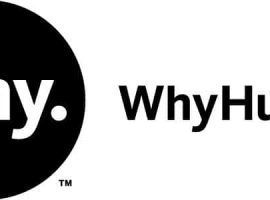Since the federal government shut down yesterday, the National Hunger Hotline has already begun to receive calls from people impacted, including a furloughed federal worker from Florida who lives paycheck to paycheck and now needs help feeding his family; a Tennessee woman who had trouble finding out how to apply for food stamps because the federal SNAP Information Number is no longer functional; and a Kansas grandmother who was interested in receiving monthly food boxes through the Commodity Supplemental Food Program (CSFP), which is not currently being funded.
Despite the shutdown, WhyHunger’s National Hunger Hotline, 1-866-3-HUNGRY and 1-877-8-HAMBRE, remains open to answer calls from hungry people and families all over the country. Though the Hotline is normally funded in part by the USDA, we remain steadfast in our commitment by connecting people to nutritious, affordable food.

How does the shutdown affect hungry Americans?
Some federal nutrition programs remain relatively intact, for the time being.
The Supplemental Nutrition Assistance Program (SNAP, formerly food stamps) will continue operations and eligible households will still receive monthly benefits for October. WIC (Women, Infants and Children) and Child Nutrition Programs, such as School Lunch, School Breakfast, and Child and Adult Care Feeding will continue operations into October.
Commodity Assistance Programs are also no longer receiving funding, however. These include:
- Commodity Supplemental Food Program (CSFP), which provides low-income seniors, mothers and children with a monthly food box;
- The Emergency Food Assistance Program (TEFAP), which provides commodity foods to food banks, food pantries and soup kitchens;
- WIC and Senior Farmers’ Markets Nutrition Programs (FMNP and SFMNP), which distribute vouchers that can be used for fresh fruits and vegetables at local farmers’ markets; and
- Food Distribution Program on Indian Reservations (FDPIR), which provides commodity foods to low-income households living on Indian reservations and Native American families residing in designated areas near reservations. Many Native Americans participate in the FDPIR as an alternative to SNAP, usually because they do not have easy access to food stores.
Other programs affected by the shutdown include TANF (Temporary Assistance to Needy Families) and LIHEAP (Low-Income Home Energy Assistance Program). Without these additional benefits, low-income families will find it even more difficult to put food on the table.
How will emergency food providers be affected by the shutdown?
Many food banks, food pantries and soup kitchens are already strapped. Rates of food insecurity have not dropped since the beginning of the recession in 2008 and millions of Americans continue to struggle with unemployment. Emergency food providers do their best to assist hungry families and individuals, but they also rely on government support. Cuts to TEFAP could reduce the amount of food that emergency food providers have to distribute by 17%. According to Sherrie Tussler, executive director of Hunger Task Force in Milwaukee, every two weeks her group will lose an estimated 216,508 pounds of commodity foods.
The bottom line, however, is that a charitable response cannot replace a robust government anti-hunger safety net. The USDA provides $114 billion of food per year through its nutrition programs, whereas emergency food providers provide people in need with about $5 billion of food.
Edited to add: For a detailed account of the impact of the shutdown on food assistance programs, see Agricultural Law.

What can I do to help?
- Support WhyHunger to help keep the National Hunger Hotline running – even when the government isn’t.
- Spread the word that the National Hunger Hotline is still open and working to connect hungry people to resources. Click here to download posters and other outreach materials.
- Support your local food banks, food pantries and soup kitchens.
- Most importantly, contact your legislators to tell them that the impact this government shutdown is having on hungry Americans is unacceptable. Tell them to get back to work and pass a Farm Bill that strengthens the anti-hunger safety net. You can learn more and take action at //hungercliff.org.





